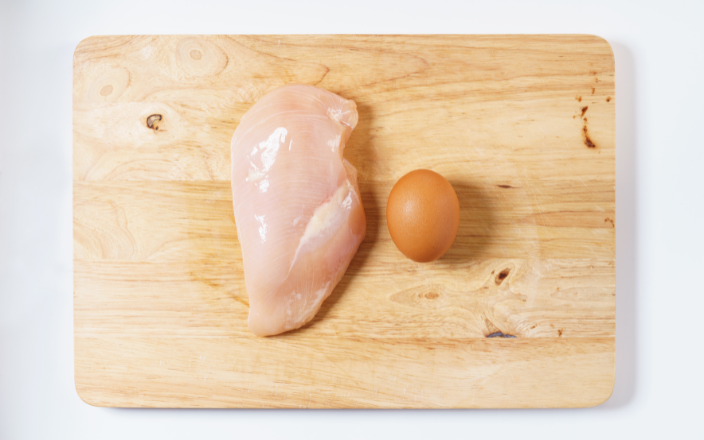The poultry industry plays a crucial role in meeting global protein demands. Chickens provide both meat (broilers) and eggs, making them an essential source of animal protein. In recent years, advancements in nutrition and management practices have significantly improved the efficiency of chicken production. Let’s explore how animal proteins contribute to this industry and its sustainability.
Efficiency and sustainability
- Shorter production cycles: Thanks to better nutrition and genetics, broilers now reach market weight in fewer days. Improved feed conversion ratios mean that fewer calories are needed to produce a kilogram of meat. This efficiency benefits both producers and consumers.
- Sustainability: Efficient production translates to sustainability. By achieving more with fewer resources, the poultry industry reduces its environmental impact. Chickens require less land and water compared to other livestock, such as cattle.
- Global challenges: The industry faces challenges like climate change, population growth, and disease outbreaks. However, it adapts by embracing sustainable practices. For instance, Tyson Foods shifted away from its “No Antibiotics Ever” policy, prioritizing chicken health and consumer safety.
Nutritional benefits
- High-quality protein: Animal proteins are rich in essential amino acids, calcium, and phosphorus. They contribute to strong bones, muscle development, and overall health.
- Egg quality: Eggs are a valuable source of protein. Modern laying hens produce larger eggs with higher protein content. Longer production cycles allow hens to lay more eggs, meeting consumer demand.
- Bone health: Chickens need specific nutrients for robust skeletons. Animal proteins play a vital role in bone development, ensuring healthier birds.
Challenges and opportunities
- Disease control: Avian influenza, COVID-19, and other diseases pose risks. The industry invests in biosecurity measures to protect flocks and maintain production.
- Feed ingredients: The ban on importing beef and bone meal due to bovine spongiform encephalopathy (BSE) challenged the industry. However, markets reopened, and production increased.
- Educating consumers: Communicating the industry’s progress is essential. People need to understand the improvements in management, genetics, and sustainability.
There is no objection to poultry and pigs consuming ingredients of animal origin in their feed. For the producer, these ingredients can be an economical source of protein. The processor needs to promote the use of feed ingredients because bans and restrictions reduce his business. Consumers do not want to pay more for their feed, but they want to be sure that it is safe.
In conclusion, animal proteins are vital for efficient chicken meat and egg production. By embracing sustainable practices and educating consumers, the poultry industry continues to meet global protein needs while minimizing its ecological footprint.
Sources: Available upon request.

